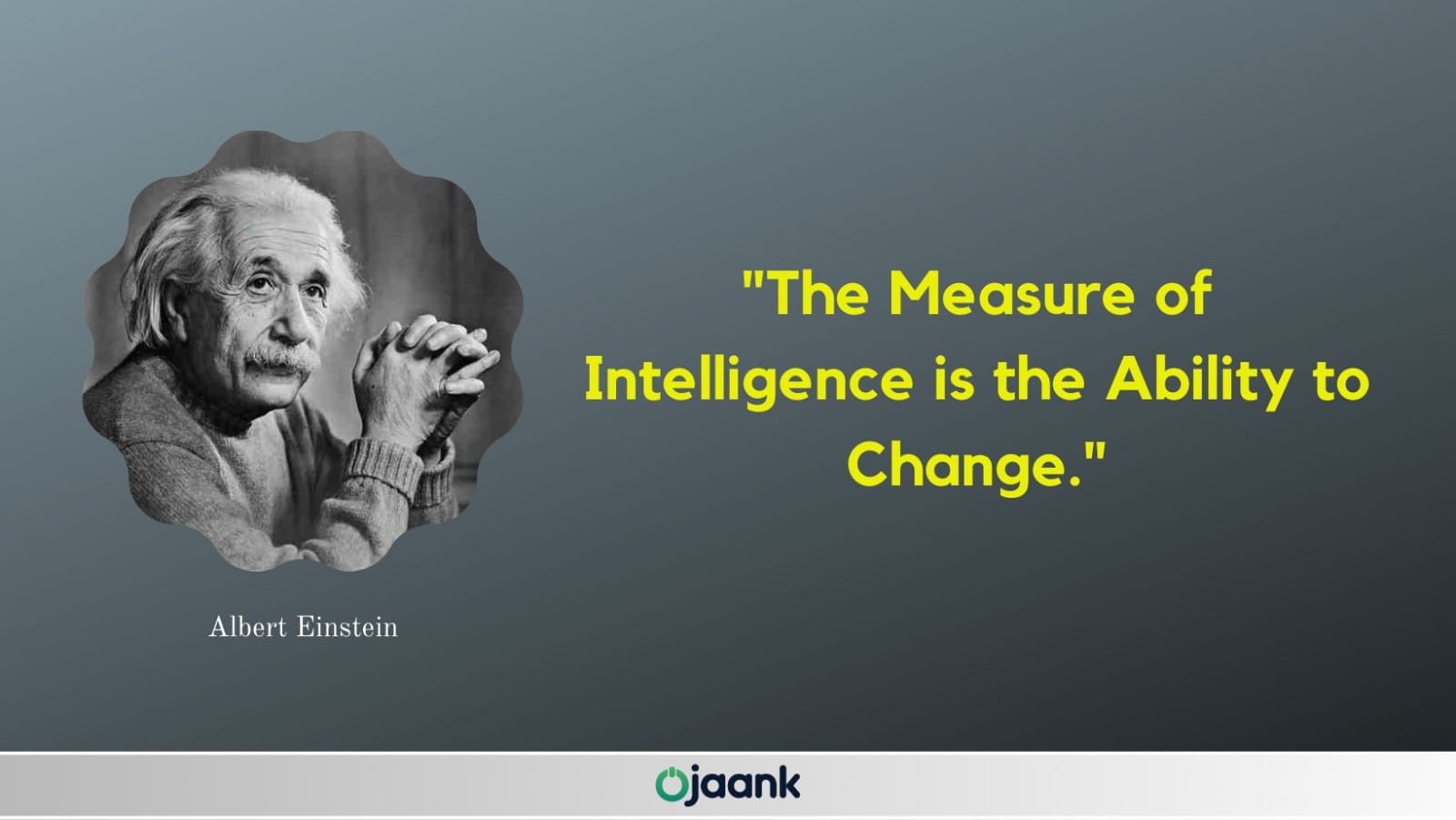The Measure of Intelligence is the Ability to Change

In a world that is constantly evolving, the concept of intelligence has undergone a transformative journey. Traditionally, intelligence was often measured by one's cognitive abilities and mastery of knowledge. However, as society and technology advance, a new perspective emerges: intelligence is not solely determined by accumulated information, but by the capacity to adapt and change. This idea is encapsulated in the famous quote by Albert Einstein, "The measure of intelligence is the ability to change." In this essay, we will delve into the various dimensions of this statement, exploring how adaptability and openness to change are fundamental markers of true intelligence.
Cognitive flexibility, the ability to shift one's thinking and adapt to new situations, lies at the heart of the concept of change-driven intelligence. Those who possess this trait demonstrate a remarkable aptitude for embracing novel ideas and revising their mental frameworks in response to evolving circumstances. This ability enables individuals to process and integrate new information efficiently, as well as synthesize diverse concepts to solve complex problems. In the age of rapid technological advancement, cognitive flexibility is indispensable, as it allows individuals to stay relevant in an ever-changing landscape.
Intelligence is not confined to individual brilliance, but also encompasses the ability to collaborate and engage with diverse perspectives. Change often arises from exposure to new ideas and viewpoints, challenging existing norms and assumptions. Intelligent individuals recognize the value of different perspectives, seeking to learn from them rather than merely imposing their own beliefs. This ability to empathize and engage with others' viewpoints fosters a more inclusive and innovative society, as it encourages the synthesis of ideas from various sources.
Change is often accompanied by challenges and setbacks. Intelligent individuals exhibit resilience in the face of adversity, using setbacks as opportunities for growth rather than reasons for defeat. The capacity to navigate through difficult situations, learn from failures, and adjust strategies accordingly is a hallmark of adaptive intelligence. This resilience is closely tied to effective problem-solving skills, as individuals who can analyze problems from multiple angles and develop creative solutions are better equipped to address the complexities of an ever-changing world.
The ability to change is intimately linked to a commitment to lifelong learning. The pursuit of knowledge should not be confined to formal education; true intelligence involves an insatiable curiosity and an eagerness to explore new subjects even outside one's expertise. In a world where information becomes obsolete at an alarming rate, the intellectually nimble individual values continuous learning as a means to remain relevant and effective. This commitment to growth reflects a deeper understanding of the importance of adaptation and change.
Technological progress is one of the most potent drivers of change in the modern world. Intelligent individuals recognize the transformative potential of technology and embrace it rather than resist it. They understand that technology can streamline processes, enhance communication, and open up new avenues for innovation. Whether it is the adoption of new software, the embrace of automation, or the integration of artificial intelligence, technological adaptation is a clear indicator of intelligence in today's fast-paced society.
Intelligence extends beyond individual actions to encompass cultural and societal adaptation. As societies become more interconnected and diverse, the ability to understand and respect different cultures and ways of life becomes increasingly vital. Intelligent individuals are capable of adapting to new social norms and multicultural environments. They value inclusivity and actively engage in dialogue to bridge gaps and promote understanding.
Einstein's quote also sheds light on the fear of change that can hinder personal growth and development. Some individuals resist change due to the comfort of familiarity or the fear of the unknown. However, such resistance often leads to stagnation and missed opportunities for growth. Intelligent individuals acknowledge their fears but do not let them dictate their actions. They understand that meaningful progress requires stepping out of comfort zones and embracing change, even when it is uncomfortable.
In conclusion, Albert Einstein's assertion that "The measure of intelligence is the ability to change" encapsulates the essence of modern intelligence in a rapidly evolving world. True intelligence transcends memorization and traditional cognitive skills, encompassing cognitive flexibility, open-mindedness, resilience, and the willingness to learn continuously. Adapting to new information, embracing diverse perspectives, and navigating challenges with grace are essential facets of this change-driven intelligence. As technology advances and societies become more interconnected, the ability to adapt and thrive in an ever-changing environment emerges as the ultimate marker of human intelligence.